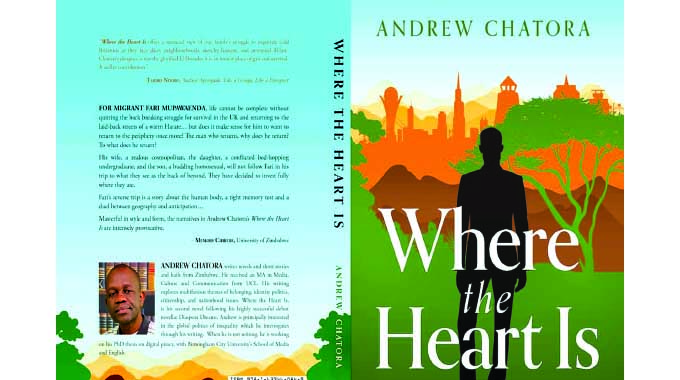Hip-hop singer interrogates social issues

Youth Interactive Correspondent
Canada-based Zimbabwean hip-hop artiste “Thabo KTheChosen” Chinake says his new album titled “+Vice” (pronounced “add vice”), has been received well as it covers social issues including mental well-being, grief and gender which resonate with most people.
The album “+Vice”, released on October 22, is his third self-released album with Nomad’s Land released in 2018 and Jouska in 2020 being the other two.
Currently based in Calgary, the 25 year old KTheChosen creates music that is both enlightening and entertaining.
In an interview with Youth Interactive, the TEDx speaker and spoken word artist, KTheChosen believes in the power of storytelling and uses his voice to share the experiences of those around him.
“+Vice is a concept album that emphasises on checking in on the strong friend while exploring mental health during the Covid-19 pandemic.
“The album highlights the importance of addressing the root causes of behaviours such as alcoholism which may be due to stress and also interrogates a wide variety of issues on a range of hip-hop sounds.
“The songs cover colonialism, grief, bad parenting, the pressure of societal expectations and club culture,” he explained.
KTheChosen said each topic has an effect on how we perceive ourselves and how our ability to keep up with this perception affects our mental health, making the album a must-listen for everyone.
In some of the songs he interweaves spoken-word interludes and musical tracks to tell the story of a female character who had passed away with each song looking at different possible factors that may have led to her death.
The lead song bio — “Her Anthem” — is a posse cut with three MCs speaking on female empowerment and being a woman in the music industry.
“A global pandemic has occurred and there is economic and political unrest as the world confronts the uncertainty of its future.
“I wanted people to get into the mindset that I wrote this project in so they could think of how the lockdown affected creatives’ ability to live off their work while juggling the responsibility to be thought leaders and commentators on social issues. For all we know, our unnamed character may have been an artist herself,” said Chinake.
On Dear African Fathers, KTheChosen enlists rapper, Soko Matemai to discuss African parenting styles and how it affects the development of their children. Partially inspired by an open letter to Black men by Nigerian-American artist, Jidenna.
KTheChosen featured a verse from Blackfoot artist, TRIBETheArtist as well as singing and hand drumming from Cree artist, Chantal Stormsong Chagnon on LONO, an old phrase that stands for “locals only, no outsiders”.
The song looks at the effects of colonialism, especially Indigenous Canada using the metaphor of children on a playground.
The song — ‘Which one r u’ — looks at bystander intervention and club culture.
It was inspired by a sexual harm prevention campaign in New Zealand known as Who are you?
The first verse tells a typical story of a night out while the second verse points out what was wrong in the first verse and offers solutions to each situation.
“It was also a direct response to a conversation South African comedian, Trevor Noah had with radio show, The Breakfast Club about consent culture.
Other songs on the album include — Courtship — which depicts a man attempting to convince a woman that he wants to be in a serious relationship with her using playful allusions to sports references.
As he lays the mark, he also looks at the double standard that exists within dating expectations for men and women as well as the judgment faced by famous Black couples.
Kintsugi, also known as “golden repair”, is the Japanese art of repairing broken pottery by mending the areas of breakage with powdered gold, silver, or platinum.
KTheChosen uses this same idea to remind us to be kind and patient with ourselves and see the beauty in our faults.
Petrichor focuses on one of the core topics of the project, grief. We are mourning the loss of the unnamed character but also sympathising with everyone who has lost loved ones during the Covid-19 pandemic.
The second verse highlights how social media has made an already delicate human experience even more difficult to navigate with celebrity deaths and the martyrdom of those who have died due to race-based violence.










Comments